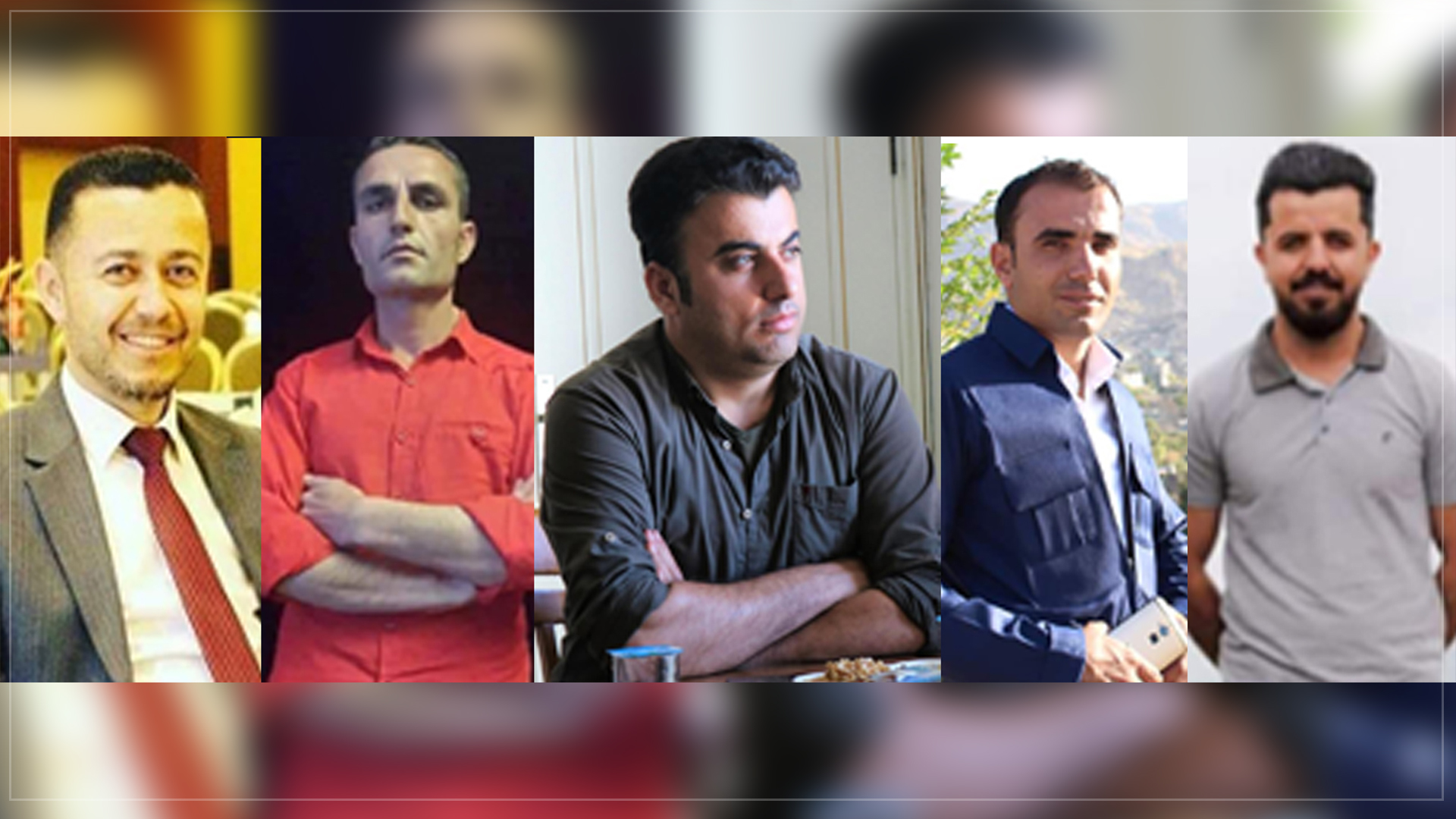
Left to right: Shvan Saeed, Ayaz Karam, Sherwan Sherwani, Guhdar Zebari, and Hariwan Issa (NRT Digital Media)
AM:09:50:08/08/2021
6564 View
+
-
SULAIMANI — Lawyers representing groups of journalists, activists, and ordinary citizens arrested in Duhok governorate last year alleged on Saturday (August 7) that the detainees were subjected to torture in the Asayish prison in Erbil where they are being held and are put under intense pressure from the authorities.
The defense team said in a letter directed to the Kurdistan Region Presidency, the Kurdistan Parliament, the Kurdistan Regional Government (KRG), and the Kurdistan Region’s Human Rights Commission that keeping the detainees in Asayish custody is "illegal.”
It demanded their transfer as soon as possible to the adult reform prisons in either Duhok or Erbil, which are run by the KRG’s Ministry of Labour and Social Affairs.
The Asayish is responsible for dealing with political crimes, counterterrorism, and counternarcotics. The Erbil and Duhok Asyaish are controlled by officials at the highest levels of the Kurdistan Democratic Party (KDP).
The UN Assistance Mission for Iraq (UNAMI) and the UN Human Rights Office (OHCHR) released a report on August 3 outlining credible allegations that the Asayish used torture on detainees in its custody or subjected them to ill treatment.
The defense lawyers argued in their letter that conditions at Erbil General Asayish do not meet standards consistent with the detainees’ rights.
The reference to pressure being placed on the detainees is likely related to attempts by prosecutors to get the detainees to testify against each other.
Last month, the trial against activist Badal Barwari and journalist Omed Baroshki was postponed after imprisoned journalists Sherwan Sherwani and Ayaz Karam and activist Shvan Saeed were called to testify, but denied that they had said what the prosecution alleged and that statements they made under interrogation were obtained through coercion and without lawyers present.
Following protests in Duhok last year against the KRG’s economic policies, the local security forces, which are affiliated with the KDP, arrested dozens of people in a widespread crackdown to suppress expressions of dissent.
Since then, at least seventeen activists and journalists have been tried on serious national security charges, in what have been widely condemned as politically motivated trials that are beset with procedural flaws that do not adhere to international standards of due process and judicial independence.
Seven of those have been convicted and sentenced to significant prison terms between one and seven years in prison.
Many others have not yet had their day in court, despite being arrested last autumn.
(NRT Digital Media)